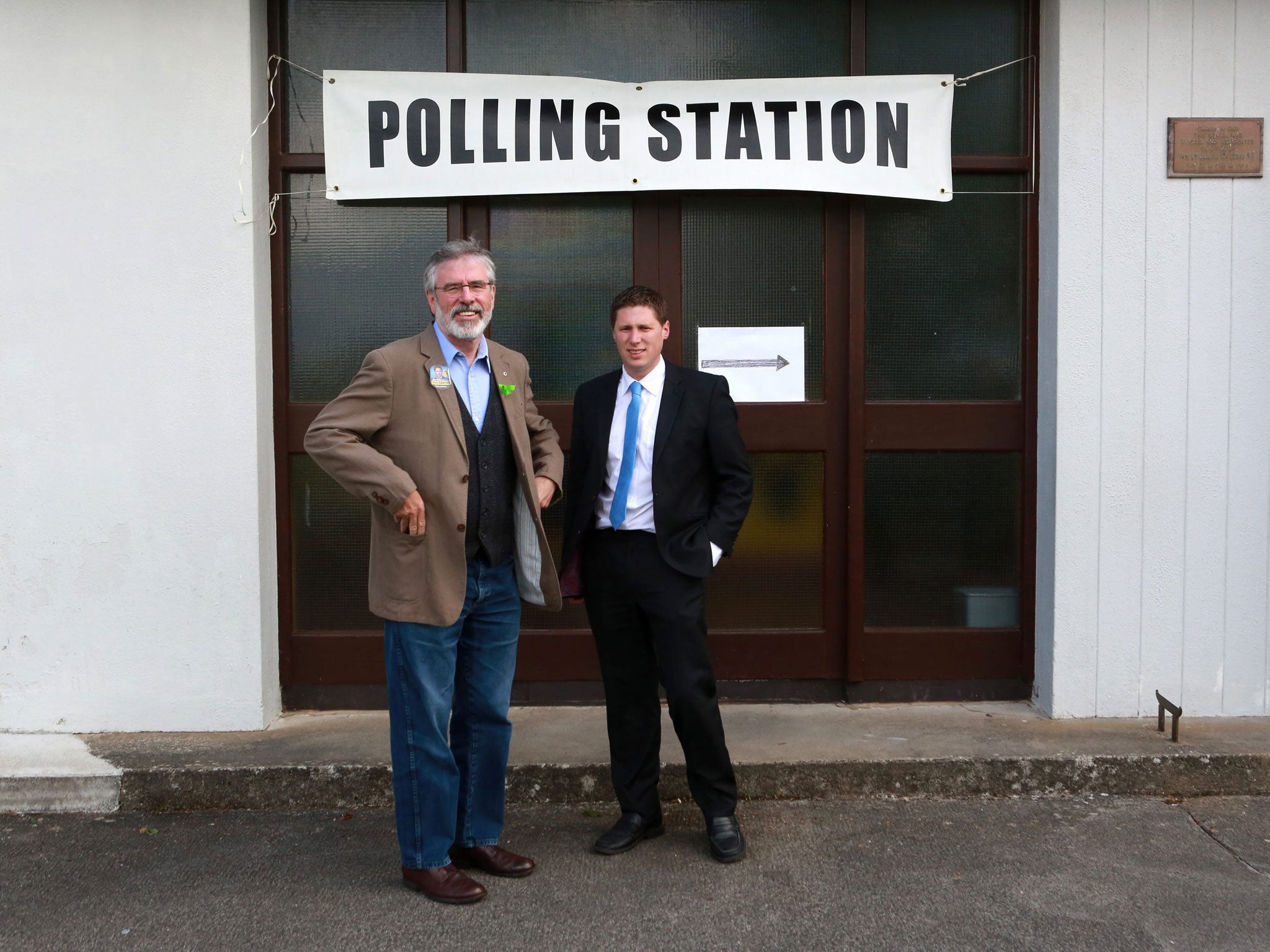Election results 2014: Sinn Fein profits as voters reject austerity policies

In elections in Dublin voters delivered what the Irish Prime Minister described as a wallop to his austerity-minded government, punishing his coalition and providing a breakthrough for Sinn Fein and other anti-establishment groupings.
A near meltdown for Labour, the junior coalition partner, and a swing to Sinn Fein that left that party jubilant, led the Prime Minister Enda Kenny to concede: “Sometimes in politics you get a wallop.”
In Dublin yesterday much debate centred on whether the result was a protest vote similar to that seen elsewhere in Europe, or something more fundamental. Although a significant movement towards Sinn Fein was predicted in many opinion polls, the actual figures still came as a shock to the political system.
With more than half of the 949 council seats filled, Sinn Fein had won 123, while the conservative republican party Fianna Fail had 168.
Independent candidates won 158 seats, 30 more than Enda Kenny’s Fine Gael party, with the Labour Party on 38.
One of the most striking features of the election was that Sinn Fein made its advances despite the recent arrest of its president Gerry Adams in connection with the 1972 IRA murder of a Belfast mother-of-10, Jean McConville. He was released without charge after four days in custody. Despite an opinion poll in which 68 per cent said they believed Mr Adams had been a member of the IRA, there were no obvious signs the episode had affected his party’s votes.
With Sinn Fein expected to treble its council seats, most commentators agreed that its performance had established it as one of the four major parties. Most concluded that its new-found strength could place it in contention for a place in a future coalition government. But most also considered that conventional parties would be loath to link up with Sinn Fein.
The surge towards the party is generally attributed to its stance that the austerity measures which have for some years dominated Dublin politics have been applied harshly and unfairly. Most of its support comes from the working class, much of which abandoned the Labour Party, complaining it had not adequately defended the interests of its traditional supporters.
Mr Kenny said the vote was born of frustration that the electorate had yet to feel any sense of economic recovery on the ground. He declared: “It’s anger. It’s saying, ‘Show me where the return is on the sacrifices I have made.’”
Mr Adams by contrast said the vote signalled “a very profound, deep-rooted change in the political landscape”.
In Belfast meanwhile election results confirmed that Sinn Fein and the Democratic Unionist Party, which already dominate Northern Ireland politics, remain the largest parties. While the DUP won more council seats, Sinn Fein had a higher share of the vote.
Subscribe to Independent Premium to bookmark this article
Want to bookmark your favourite articles and stories to read or reference later? Start your Independent Premium subscription today.

Join our commenting forum
Join thought-provoking conversations, follow other Independent readers and see their replies